A Personal Finance Budget For Free Spirits
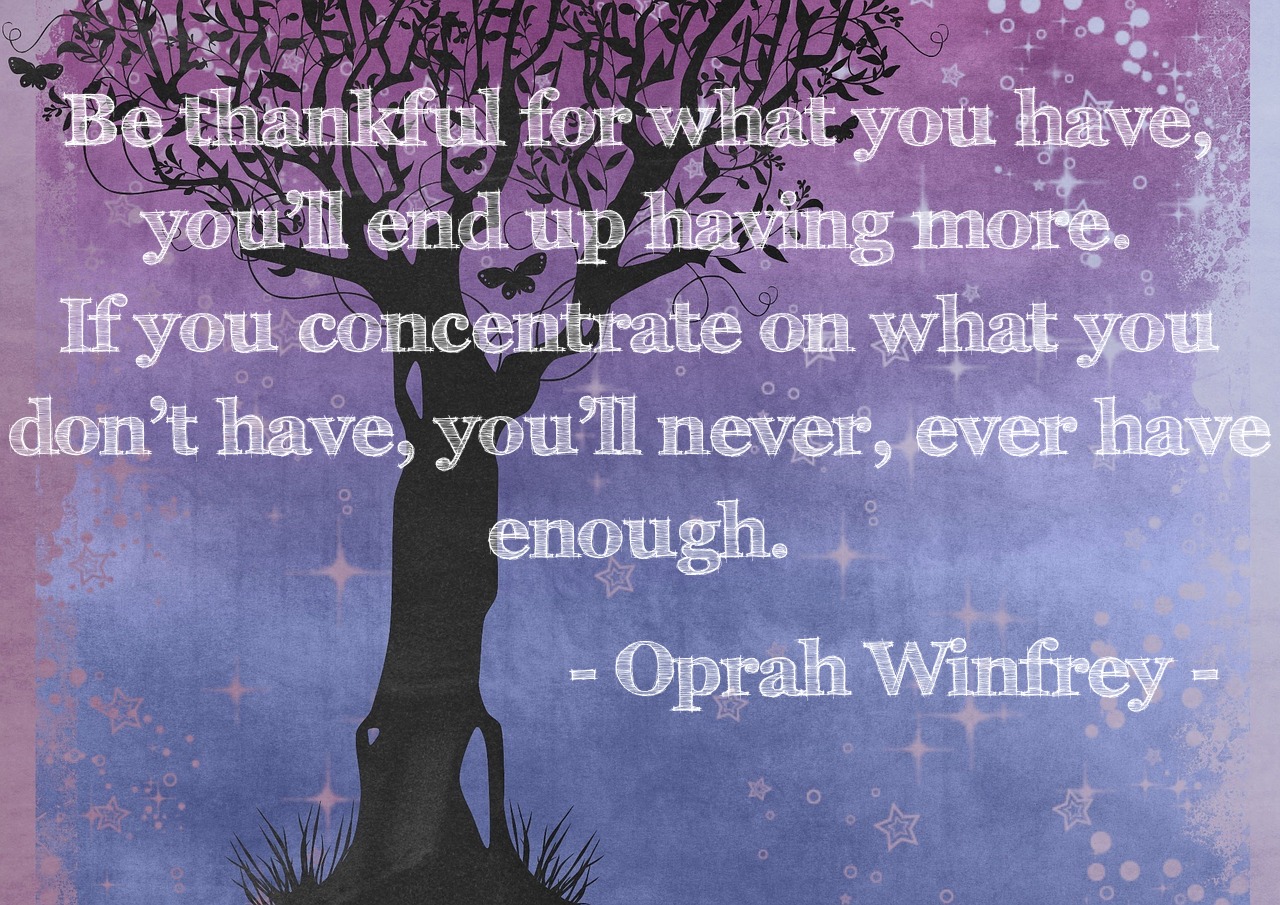
A personal finance budget is the best way to get rid of those constant thoughts of lack. Just as the Oprah quote above says - focus on lack and that's what you'll get.
But if you find a way to concentrate on what you do have, and feel happy about it, more will come your way.
Taking care of your monthly expenses using a budget will do just that. Once it's done, it'll give you the peace of mind to focus on what you love instead. It'll give you the space to feel appreciation for what you do have, and set your mind free to plan your next free spirited adventure.
If you've been putting this off for a while, and things aren't that rosy in the money department, it can be tough facing the situation you’ve tried to ignore for so long… but it has to be done - so let's get to it...
1. List All Your Current Expenditure
Start by making a list of everything that you spend money on each month. Begin with the obvious payments that you know about – rent/mortgage, petrol, car repayments, credit card payments etc. If you need prompting check your bank statements.
You’re most likely already clear on these items so this part of your personal finance budget shouldn’t be too difficult, but there will be areas where you’re spending money that you probably aren’t even aware of, so the next step is….
2. Find Out Where Your Hidden Expenses Are

To find those sneaky expenses I want you to carry round a notebook for a week and every time you spend money write it down. I mean everything… the cool drink, the magazine, the car park fee and the chocolate bar you grab on a whim.
It may sound silly, but you'll be surprised - this will start to give you a picture of where you’re spending money that you don’t even realize.
3. Divide Expenses Into Categories
When you have all your expenses recorded you can start to form your personal finance budget.
Take your complete list of expenses and break them down into three categories:
- Absolutely Have To Spend (rent/mortgage, food, electricity etc)
- Don’t Have To Spend But Really Want To (monthly night out with the girls, daily coffee, DVD night with the family, etc)
- Don’t Need To Spend And Often Regret (clothes you don’t need, take away meals, impulse buys that never get used or worn)
In creating your personal finance budget, we’ll work with your ‘Absolutely Have To Spend’ category first and see what we can keep as a treat from the second. But the third category ‘Don’t Need To Spend And Often Regret’ has to go!
4. Show Me The Money!
Take the items in your ‘Absolutely Have To Spend’ list and add up how much that comes to. See what is left from your income after that has gone out.

If you find that even in this first category you’re only just able to make ends meet, or worse, the ends don’t meet at all, sit down and really brainstorm – do you have to spend as much as you do?
Look at your grocery shopping for example – mostly we buy stuff we don’t need to buy. Yes it’s nice to have chocolate cake in the fridge and expensive ready-made meals in the freezer – but come on. How badly do you want to get your money in order? If you're serious, then something has to shift.
You may find that you need to make more drastic changes, like moving to a cheaper apartment, downsizing your car, or even selling one of them if you’re a 2 car family..
You need to cut your expenses back to the bare basics so that you have all your ‘have to’ category covered with money left over. This exercise alone will set your mind at rest, remove a huge weight from your shoulders and generally make you feel like you have room to breathe again.
Use A Working Budget Sheet
The next step in creating your personal finance budget, is to enter all the expenses into your budget sheet, or use mine. Whew! A bit step completed!
Does this all sound too simple?
Well it shouldn’t. Having a personal finance budget is one of the main behaviors common to a large percentage of people who become millionaires (according to Thomas J. Stanley PhD, the author of The Millionaire Next Door) - it’s the first step, and it's something they continue even after they become millionaires - so don’t underestimate it.
However, it can be a little overwhelming at first, so if you’re feeling that way right now, remember this is only step one of the process - it's not for ever.
Organizing your day-to-day finances will set your mind at rest so you can concentrate on planning a brighter future with lots more freedom to do the things you want to.
Personal Finance Budget Done - Now What?
The money that’s left over from the first exercise should be allocated in 3 areas:
1. Paying off debt
2. Starting a savings plan
3. A treat from the 'Don't Have To Spend But Really Want To' category
1. Paying Off Debt
It’s really important to get rid of your debt as soon as possible, especially high interest credit cards or personal loans. In order to kill this debt as fast as you can, you need to pay more than the minimum payment, in fact pay as much as you can afford each month to clear it quickly and also pay far less interest. To get more in depth assistance with this go here.
2. Start Saving Now
Allocate at least 1% (preferably 10% or more) of what you earn and put it in a savings account every month. Don’t wait until your debt is paid off to start saving, even if it’s only a small amount to start with, add this expense to your personal finance budget. For strategies on saving go here.
3. Have Some Fun!
It’s important to have some kind of treat every now and then – it actually helps to keep you keep to the plan the rest of the time. Choose something from your ‘Don’t Have To Spend But Really Want To’ category that’s important to you but inexpensive.
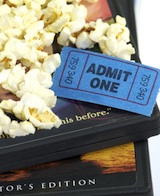
For example, if it’s a family tradition to rent a couple of DVD’s and get take away pizza on a Friday night, to begin with you could rent the DVD’s and make nachos instead of buying the pizzas.
Or maybe you absolutely love your yoga classes - find a way to fit them into your budget - even if it's only once a week.
If things are really tight, factor in some things that don’t cost money. If you love reading, instead of buying books, start putting aside some time to visit your library and borrow books instead.
Get creative, give yourself some treats, but keep the end in mind… don’t blow the budget!
Finding It Hard To Get Motivated To Budget?
You may find that you need to understand what it is you’re aiming for before you’ll be really motivated to set up and stick to your personal budget. The best way to do this is to set some money goals first and then come back to this.
One Small Step
For a free spirit, setting a personal finance budget can seem like such a big deal - so restricting and limiting - but really it's not.
When you put it into perspective, it's one small step towards a life of freedom.
We can never get away from money completely - we need it in the world we live in. But if you can start building some good habits around how you manage yours, it's amazing how far it will go and how much you can do without having to become a slave to it.
A personal finance budget will actually set you free to do the things that really light you up, instead of always messing about working out how you can afford this, or pay for that.
Try it out - set up your personal finance budget once, and it's done. Then you can go off and fly kites, read books or hang out with the fairies at the bottom of your garden.
If you want to take the next step and get back to your true abundant nature - to just being yourself and living a life you love, sign up below and get part one of my brand new course & workbook free:
More Stuff...



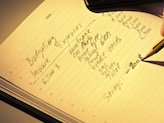
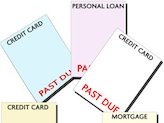
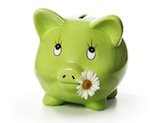









New! Comments
Have your say about what you just read! Leave me a comment in the box below.